Welcome to Remeday, your go-to source for all things medicinal mushrooms! We're on a mission to make mushroom education easy, fun, and accessible to everyone.
Today, we're diving deep into the fascinating world of lion's mane mushroom and its potential to bring relief to those suffering from neuropathy.
Neuropathy, a condition that affects millions around the world, can be a challenging and debilitating experience. But fear not, because nature might have a remedy up its sleeve. Lion's mane mushroom, known for its unique appearance resembling flowing white manes, is gaining recognition for its potential neurological benefits.
In this article, we'll embark on a journey to discover the magic of lion's mane and explore the optimal dosage for relieving neuropathy symptoms. But first, let's set the stage by understanding the complexities of neuropathy itself. So, fasten your seatbelts, because we're about to unravel the secrets of this incredible mushroom and its potential to make a real difference in the lives of those seeking relief.
Are you ready to explore the world of lion's mane and neuropathy? Let's get started!
Already know the basics?
>> Jump to the recommended dosage section.
Understanding neuropathy
Neuropathy is a condition that affects the peripheral nervous system, which consists of the nerves outside the brain and spinal cord. It's often characterized by symptoms such as tingling, numbness, pain, and muscle weakness. For those who experience it, neuropathy can significantly impact their quality of life.
According to the Mayo Clinic:
Peripheral neuropathy happens when the nerves that are located outside of the brain and spinal cord (peripheral nerves) are damaged. This condition often causes weakness, numbness and pain, usually in the hands and feet. It also can affect other areas and body functions including digestion and urination.
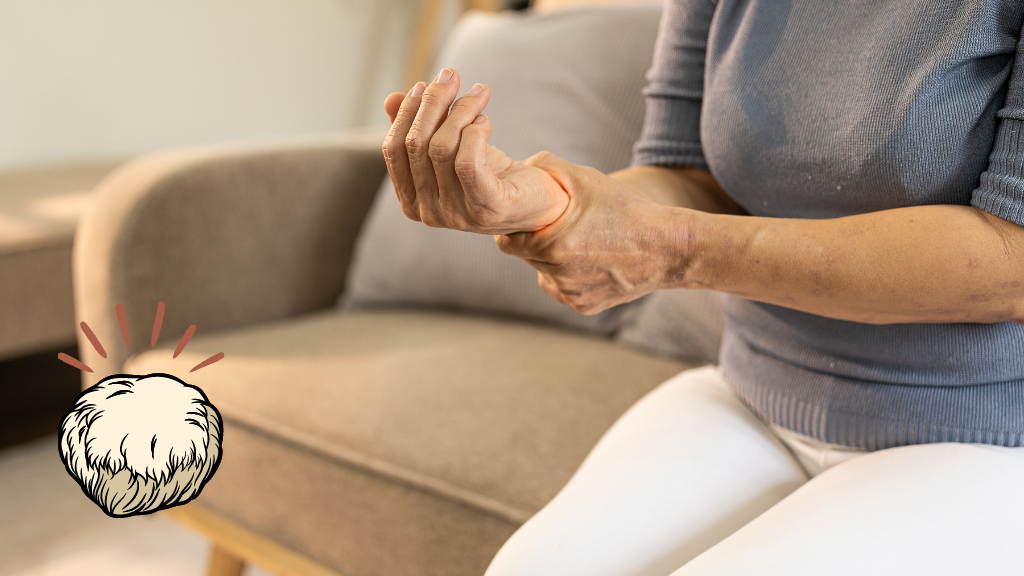
What are the common causes of neuropathy?
- Diabetes: One of the most common causes of neuropathy is diabetes, particularly when blood sugar levels are not well-managed over time.
- Trauma or Injury: Physical trauma, such as accidents or sports injuries, can damage nerves and lead to neuropathic symptoms.
- Infections: Certain infections, such as shingles or HIV, can cause neuropathy.
- Medications: Some medications, including chemotherapy drugs, may have neuropathy as a side effect.
- Autoimmune Disorders: Conditions like rheumatoid arthritis and lupus can lead to nerve damage and neuropathic symptoms.
The impact of neuropathy on daily life
Neuropathy can have a profound effect on daily life. Simple tasks like walking, holding objects, or even feeling the texture of surfaces can become challenging.
In addition to physical discomfort, it can also lead to emotional distress and a reduced overall sense of well-being.
Traditional medications can be riddled with negative side effects. Which is why many are turning to supportive mushroom supplements to help find relief.
Why finding effective remedies matters
Given the complexity and diversity of neuropathy causes, finding effective remedies is crucial. Many individuals seek alternative and natural solutions to alleviate their symptoms and improve their quality of life.
Best of all, lion's mane supplements are easy to source and administer and they're generally considered safe for most individuals.
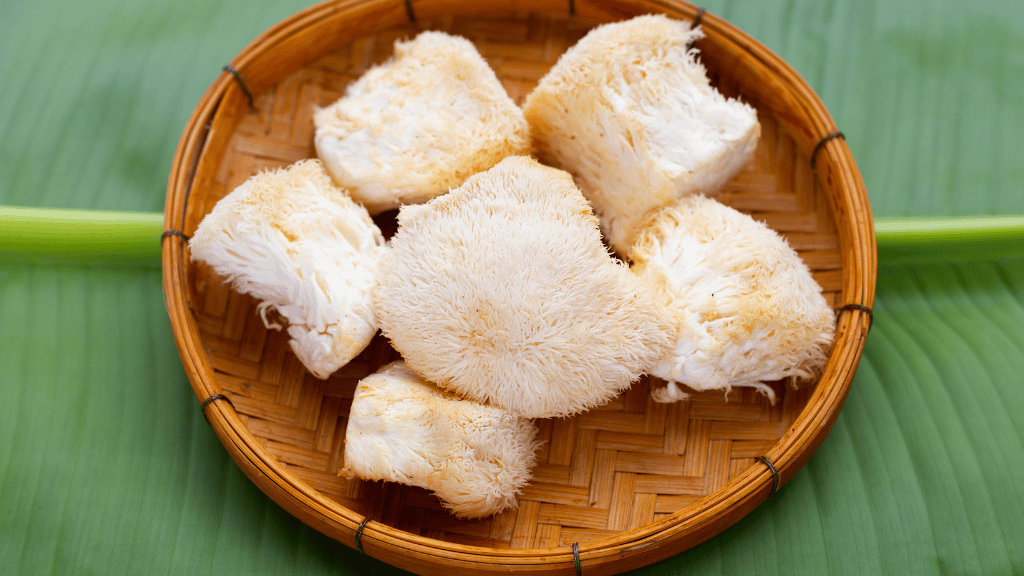
Lion's mane and its neurological benefits
Lion's mane mushroom, scientifically known as Hericium erinaceus, is a remarkable fungus that has been capturing the attention of researchers and enthusiasts alike. It's a brain-booster and healer like no other. Its distinctive appearance, resembling cascading white icicles or a lion's mane, is just the beginning of its intriguing qualities.
Lion's mane isn't just pretty - it's packed with neuroprotective compounds that can be amplified with proper extraction.
Active compounds and neurological potential
One of the most captivating aspects of lion's mane is its unique composition of active compounds. This mushroom contains bioactive substances such as hericenones and erinacines, which have shown promising neurological benefits in scientific studies.
Let's take a deeper look at some of these compounds in action:
Benefits of hericenones for neuropathy
These are aromatic compounds found in lion's mane and are known for their potential neuroprotective properties. Hericenones have been studied for their ability to stimulate the growth of nerve cells (neurogenesis) and promote nerve regeneration, making them particularly relevant in the context of neuropathy.
While the research is ongoing, early findings suggest that hericenones may play a vital role in enhancing nerve health and function.
Benefits of erinacines for neuropathy
Another group of bioactive compounds found in lion's mane, erinacines, have demonstrated remarkable potential in supporting neurological health. Like hericenones, erinacines have been associated with promoting nerve growth and regeneration.
These compounds have gained attention for their potential to enhance cognitive function and memory, making them of interest to those seeking natural remedies for neurological conditions.
Benefits of polysaccharides for neuropathy
Lion's mane also contains polysaccharides, which are complex carbohydrates known for their immune-modulating properties. While not directly related to the mushroom's neurological benefits, polysaccharides may indirectly contribute to overall well-being by supporting the immune system.
A healthy immune system can have a positive impact on neurological health and overall vitality.
Learn more about polysaccharides in our guide to beta-glucans here.
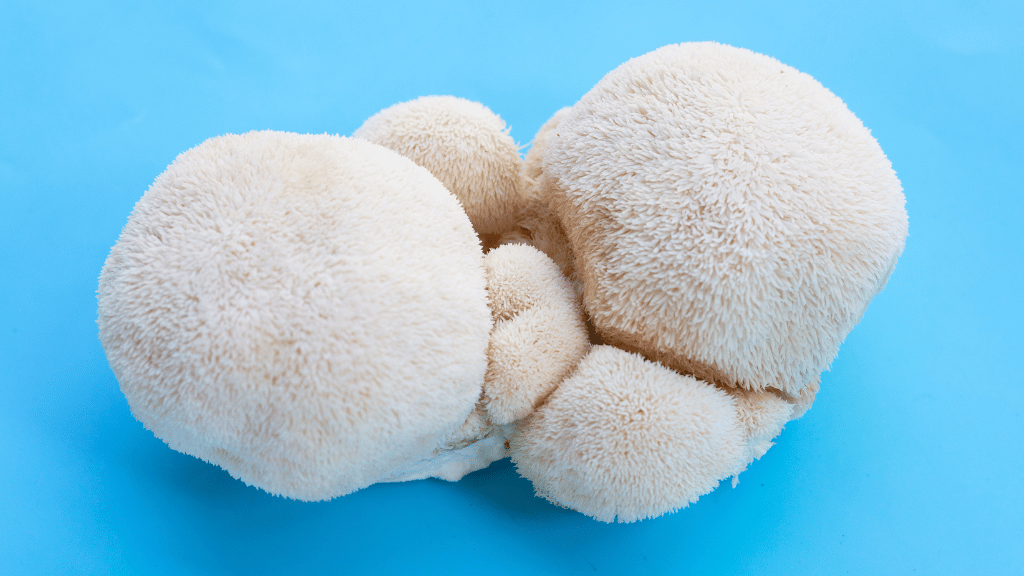
Other uses of lion's mane
Lion's mane isn't just a potential support for neuropathy. It can also be used for ADHD, headaches and migraines, and even depression.
Historical use of lion's mane as traditional medicine
Lion's mane has a rich history of use in traditional medicine, particularly in Asian cultures. For centuries, it has been revered for its potential to enhance cognitive function and promote overall well-being.
Even though interest in this mushroom has surged, medicinal mushrooms have been used for more than 2,000 years (yes, that many!) to aid in health and wellbeing for a number of ailments.
Traditional practitioners often utilized lion's mane to support mental clarity and concentration.
Recent scientific interest in lion's mane
In recent years, lion's mane has garnered increased scientific interest, leading to a surge in research focused on its potential health benefits. While much of this research is still in its early stages, the preliminary findings are encouraging, especially in the context of neurological health.
We'll talk more about some of the research supporting the use of lion's mane for neuropathy later in the article.
But first, let's talk about how to find the right product and dosage:

Lion's mane dosage for neuropathy
Finding the right dosage of lion's mane mushroom for neuropathy relief can be a crucial step in your journey toward improved well-being. While there isn't a one-size-fits-all answer, as individual responses can vary, here are some key factors and considerations to help you determine the optimal lion's mane dosage:
Recommended dosage of lion's mane for neuropathy
For people in otherwise good health, the recommended dosage of lion's mane extract for neuropathy will range from 500 mg to 3000 mg per day. These doses are often divided into multiple servings throughout the day.
The amount of lion's mane you take will depend on a number of factors including the quality of your product, the way it was extracted, and your individual body needs.
Finding the right dosage can be confusing.
But don't worry!
We're here to help.
First, consider your specific needs
If you're using lion's mane specifically for neuropathy, you first need to consider your unique situation.
What does that mean, exactly? We're talking about the severity of your symptoms, your overall health, and any other treatments or medications you may be using can all play a role in determining the right dosage.
Consult a healthcare professional
Before starting any new supplement regimen, especially for medical conditions like neuropathy, it's crucial to consult with a healthcare professional. They can provide personalized guidance based on your medical history and individual needs.
Lion's Mane is generally considered safe for most people. In fact, you may have even had some on your local mushroom pizza.
Nevertheless, extracts of lion's mane can be powerful and may interfere with medications you're taking. Learn more about the side effects of lion's mane here.
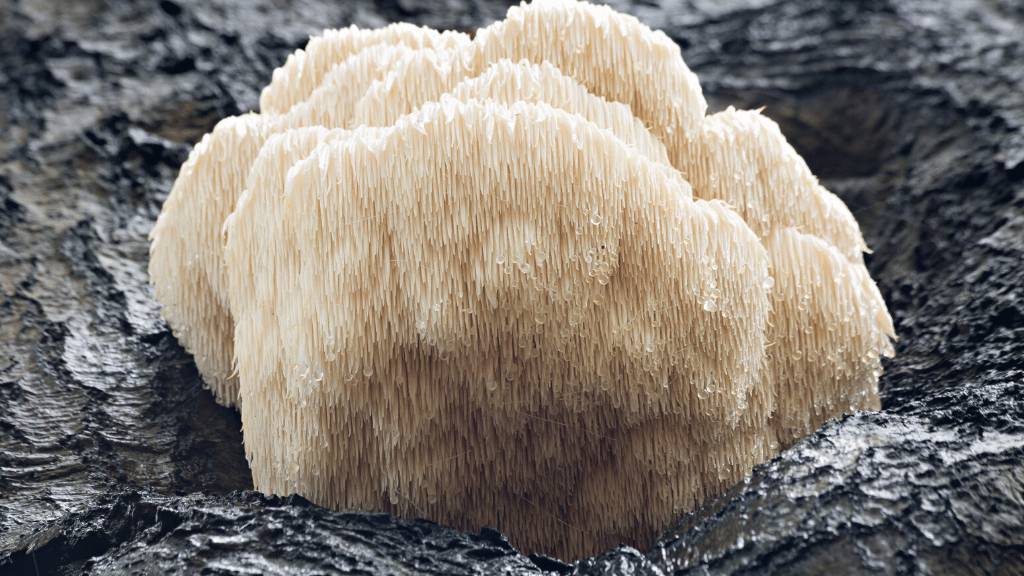
Start low and gradually increase your dosage
If you decide to try lion's mane for neuropathy, we highly, highly recommend starting with a lower dosage and gradually increasing as needed.
This will allow you to assess how your body responds and whether you experience any side effects.
If it's your first time taking a medicinal mushroom extract, we recommend starting at around 250 mg.
Depending on the type of supplement your taking, you should be able to easily measure this out against the package recommendations.
Then, gradually increase the amount over several days.
Is eating lion's mane enough for benefits? The role of extraction
You might wonder if simply consuming lion's mane mushroom in its natural form, like adding it to your meals, provides the same benefits as taking supplements.
While incorporating lion's mane into your diet can be nutritious and delicious, it's essential to understand the role of extraction in maximizing its potential advantages.
The importance of lion's mane extraction
Lion's mane mushrooms contain valuable compounds such as erinacines and hericenones that are believed to offer neurological benefits, making them of interest for neuropathy relief.
However, these beneficial compounds are often found in higher concentrations in the fruiting body of the mushroom, and their bioavailability (ability to be absorbed by the body) can be limited when consumed in their natural state.
Mushroom cells have a sturdy layer of protection called chitin. Chitin is very difficult for our bodies to break down naturally. But the beneficial compounds are hidden underneath this layer of chitin.
Extraction helps to break down this sturdy layer and make the compounds underneath easier for our bodies to access.
Why extraction matters
Extraction processes involve carefully isolating and concentrating these active compounds, making them more accessible and potent. Usually this is done with hot water, alcohol, or both.
Lion's mane supplements, particularly those made from extracted fruiting body, provide a controlled and standardized way to deliver the desired compounds in therapeutic amounts.
We have a complete guide to mushroom extraction if you want to learn more about it.
Finding a quality mushroom extract product
We really cannot stress this enough.
With the surge of interest in medicinal mushrooms, many supplement companies are eager to jump on the bandwagon. Just because a company has great marketing doesn't mean it's a great product.
Ensure that you choose a high-quality lion's mane supplement from a reputable source.
Some companies talk a big game but are mostly selling mycelium.
| Fruiting Body | Mycelium |
| The fruiting body is the visible, above-ground part of the mushroom that most people are familiar with. It's the mushroom cap and stem. Fruiting body extracts are generally considered to be more potent and effective because they contain a higher concentration of the active compounds responsible for the mushroom's potential health benefits, including erinacines and hericenones. These compounds are believed to have neuroprotective properties that may be beneficial for neuropathy. | Mycelium is the underground network of fungal threads that serves as the mushroom's root system. Mycelium-based supplements are typically less concentrated in the active compounds compared to fruiting body extracts. While mycelium can be a valuable source of nutrients and compounds, it may not contain as high a concentration of the specific compounds thought to be most effective for neuropathy relief. |
| High-quality lion's mane supplements made from the fruiting body of the mushroom tend to be more potent and reliable in delivering the desired health benefits. The concentration of erinacines and hericenones in the fruiting body can vary depending on the source and processing methods, so it's essential to choose a reputable product. | Mycelium-based supplements may be less consistent in terms of active compound content. The quality and potency of mycelium extracts can vary widely between different manufacturers and products, making it crucial to research and select a reputable brand. |
Many of the research studies examining the potential health benefits of lion's mane for neuropathy have used fruiting body extracts. As a result, there is more scientific evidence supporting the efficacy of fruiting body-based supplements for neurological health.
Look for products that provide information about the concentration of active compounds, such as erinacines and hericenones. You'll also want to learn about their sourcing and extraction processes.
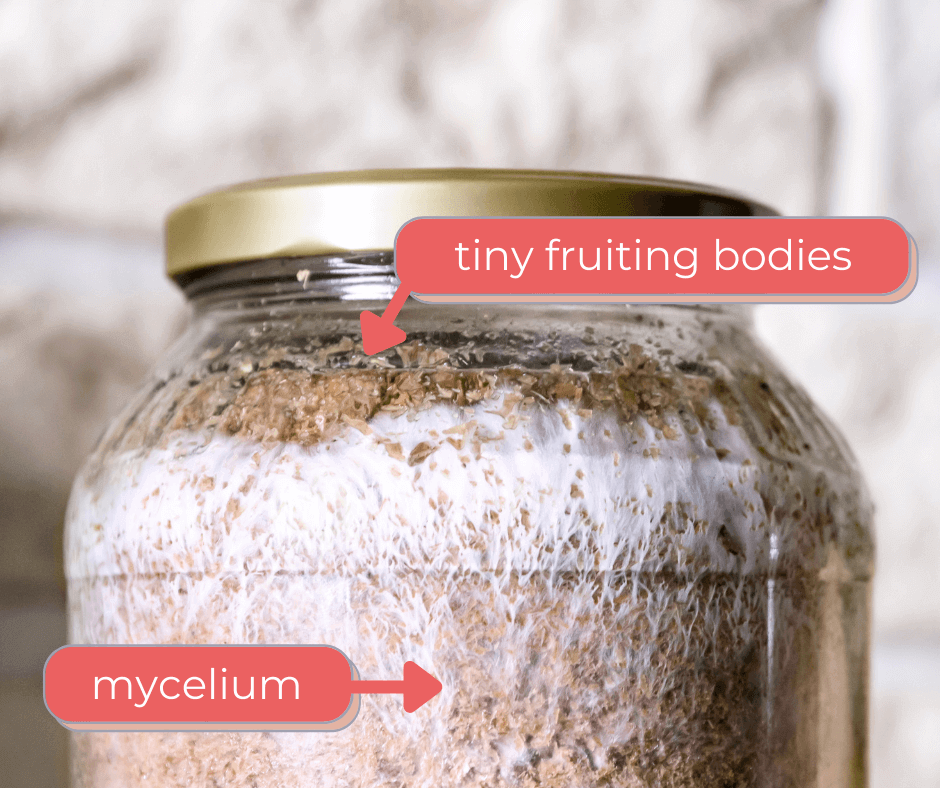
As you can see, mycelium is plentiful in this jar. But the fruiting bodies are where the real power comes. If your product doesn't list the ratio of fruiting body to mycelium, it's best to go with a 100% fruiting body product to be safe.
We know this is a lot to take in.
If you're not sure where to begin, we can help.
Here at Remeday, it's our goal to connect our readers with trusted, tested medicinal mushroom products.
We only ever recommend products we've tried ourselves for 30+ days and would recommend to our friends and family. We started this site to weed through the noise and help folks connect with genuinely great products.
Recommended lion's mane supplements for neuropathy
If you're looking to get the most value from your lion's mane supplement, we can confidently recommend the following brands:
Real Mushrooms is the best of the best when it comes to quality, sourcing, extraction, and price.
FreshCap is another brand you can feel great about. Their quality and packaging is hard to beat.
If tinctures are more your speed, you'll love the folks over at Life Cykel. They specialize in small batch high-quality tinctures.
Have a bunch of fresh Lion's Mane mushrooms on hand? Fear not! You can process them at home into tea or tinctures following our guide.
These products are easy to find online. But sometimes, the best products are available at your local mushroom farm. We have built the world's largest map of US-based mushroom farms which you can explore here. Locally sourced mushrooms have a number of benefits for the body, economy, and environment. Just make sure you ask about their sourcing and extraction process!
Our team is always here to help answer any questions or help guide your decision making.
Monitor your progress over time
The best way to understand whether Lion's Mane is helping your neuropathy is to keep a journal. Use this to jot down your neuropathy symptoms, dosage, and any changes you observe over time. It doesn't have to be extensive to be effective.
Once you're in a good place, try weaning off for a day or two. How do your symptoms change? Sometimes the best way to notice a difference is to stop.
Your journal can help you and your healthcare provider assess the effectiveness of lion's mane for your specific situation.
Wondering when the best time to take lion's mane is? We have a guide for that, too!
Important safety considerations
Lion's mane is generally considered safe for most people when taken at recommended dosages. However, if you experience any adverse effects or have concerns about interactions with other medications or conditions, consult with your healthcare provider promptly.
We really cannot stress this enough, folks. Talk to your doctor before taking high doses of any supplement!
Research about lion's mane for neuropathy
The potential of lion's mane mushroom, scientifically known as Hericium erinaceus, to alleviate neuropathy symptoms has caught the attention of researchers. While the field of study is still evolving, several research studies have provided valuable insights into the effects of lion's mane on neuropathy.
Lion's mane improves mobility in mice with frailty
In one study, scientists wanted to see if a special extract from the lion's mane mushroom, known as H. erinaceus, could help older mice who were experiencing frailty, a condition where they had trouble moving and thinking.
Frailty is often linked to chronic inflammation in the body as we get older. The researchers gave the mice this extract for two months and found that it partially improved the mice's ability to move around. They also looked at the mice's brains and found that the extract seemed to protect the part of the brain called the cerebellum, which is important for movement and coordination.
This protection included reducing inflammation and stress in the brain. These findings suggest that this extract from lion's mane mushroom could be a helpful addition to treatments for frailty in older adults, alongside other treatments they may receive.
Lion's mane appears to help with neuropathic pain in rats
In this study, researchers looked at the effects of Hericium erinaceus (HEE) on diabetic neuropathic pain in rats. They induced diabetes in these rats and then gave them HEE by mouth for six weeks. The results showed that rats treated with HEE at a dose of 40 mg/kg experienced less pain and had improved blood sugar levels.
Additionally, HEE seemed to boost certain enzymes and substances in the rats' bodies that help protect against damage from diabetes. This suggests that HEE might be helpful in reducing pain caused by diabetic neuropathy, and it might work by improving the diabetic condition and acting as an antioxidant.
In simpler terms, this study found that a mushroom called Hericium erinaceus could reduce pain in diabetic rats and improve their diabetes. It seemed to do this by acting as an antioxidant and helping protect the rats' bodies from the harmful effects of diabetes.
Lion's mane exhibits neuroprotective properties
In one study, the researchers aimed to understand if erinacines could protect nerve cells and how they might do that. They developed a special method to make more of these nutrients from the mushroom and then tested them on nerve cells.
The results showed that the mushroom extract could protect the nerve cells from damage caused by a substance called glutamate. It did this by reducing harmful molecules in the cells and preventing cell death. This suggests that Hericium erinaceus might have potential as a natural way to protect nerve cells.
An important note about the limitations of research
It's important to note that while these studies are promising, the research on lion's mane and neuropathy is still in its early stages.
As you can see, many of the studies listed here are on rodents. Here at Remeday, it's our goal to help you determine critically whether alternative medicine, like mushrooms, can help.
The reality is, more extensive clinical trials are needed to fully understand the mechanisms and effectiveness of lion's mane for neuropathic conditions.
Still, early research and anecdotal evidence show a lot of promise.
We hope you found this article helpful! If you're looking for more ways to integrate mushrooms like lion's mane into your daily routine, subscribe to our popular newsletter, the MorningMush!







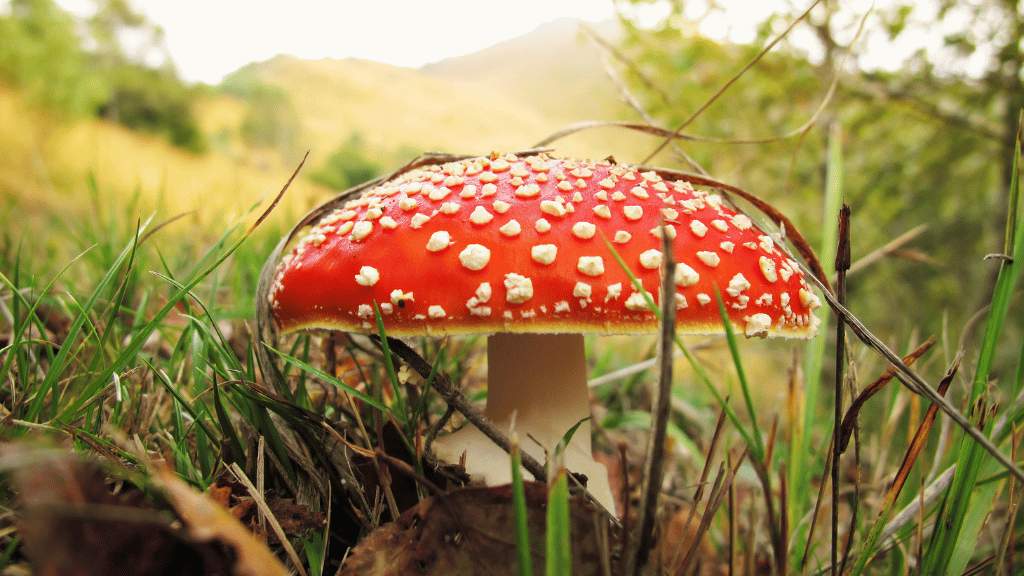


.png)
